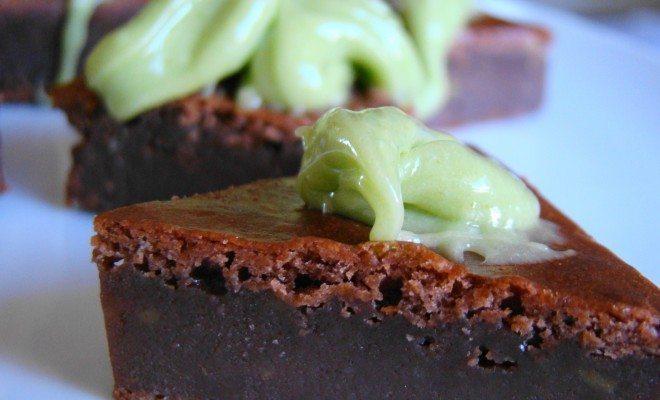
Cannabis in America
Have Your Pot and Eat it Too: Regulating Edible Marijuana
Despite some positive results of Colorado’s marijuana legalization, like additional revenue and a decrease in crime, there are issues that require further legislative attention. The main point of dispute is the regulation, or rather lack thereof, of marijuana edibles. THC, the mind-altering ingredient in marijuana, can be converted into a cooking oil and used to make treats including truffles, lollipops, cookies, and basically anything else you can eat.
It is easy to see the appeal after just a glance at the menu in a dispensary, often including selections like macadamia nut cookies and candy bars alongside the more traditional brownies. This appeal, however, does not only apply to legal users over age 21, but to children who unknowingly find these THC-laced goodies lying around.
Why Regulate?
Critics claim edibles are far too alluring to children. The cardinal concern here is that kids will be tempted by marijuana candy and guzzle it down without knowing what they are eating. According to the New York Times, “so far this year, nine children have ended up at Children’s Hospital Colorado in Aurora after consuming marijuana, six of whom got critically sick. In all of 2013, the hospital treated only eight such cases.” In a recent incident, a seven-year-old girl in Colorado was hospitalized after ingesting a THC edible. While it does appear that the trend of the hospitalization of children who consumed pot has increased, the evidence is not yet conclusive.
What is the key to preventing future events from occurring? Law enforcement officers and manufacturers of marijuana edibles stress time and time again the importance of the role of parents in keeping their kids away from potentially tempting pot candies. “There is a level of discretion and education and, frankly, tenacity on the behalf of parents that has to occur. If you leave pot lying around, kids are going to find it,” said Joe Hodas, a spokesman for the Denver-based Dixie Elixirs edibles.
Another issue noted with marijuana edibles is the difficulty with dosing them properly. To deal with these issues, lawmakers are considering new packaging with more obvious warnings or limiting each package to contain just a single dose. Recreational dispensaries are also implementing safety measures by listing precautions for edible users.
Last time I ate a brownie I bought it legally from a recreational marijuana dispensary. The brownie was 90 MG, so I used caution in the portion I ate because I knew that my tolerance was nonexistent. I started feeling the sensation creeping on about 20 or 30 minutes after eating it. My girlfriend, who has had much less experience using marijuana than myself, was trying to argue that it wasn’t working and that we should eat more, but I urged her to be patient because I knew that even the small amount we ate would get us high. We both ate a little more because I figured she could learn firsthand about the appropriate dosage for her. The peak of my high wasn’t attained until two to three hours after consumption. The experience is equally in the mind as well as the entire body, so I recommend not going out or driving and just letting the drug take effect.
-Anonymous Colorado marijuana user
Advocates of further regulation often cite recent incidents in which two individuals died, allegedly due to the over-consumption of THC edibles; however, the roll of edible marijuana in these deaths remains in question. The only instances on record include a man who jumped off a balcony to his death after consuming a cookie laced with the amount of THC in six joints. In the other instance, a man hallucinated and stabbed his wife, but other drugs were more likely the contributing factor leading to his actions.
Whether the marijuana edibles were the true culprit or not, these events and others have led lawmakers to begin tightening the regulatory noose on their THC content, sale, and marketing. Many express concern over the appearance of the labels on edibles as they appear strikingly similar to their non-THC counterparts.
How are Edibles Different?
In short, when THC is digested, the body absorbs it more slowly than when it is smoked, and therefore can cause the user to feel the need to consume far too much. In spite of this, edibles do not cause damage to lungs in the way that smoking can.
According to an anonymous Colorado marijuana user, the experience consuming pot edibles is a juxtaposition of emotion. “There is a simultaneous balance of being completely relaxed and being on the verge of a panic attack, for me.”
Like many other recreational pot users, he generally prefers pot edibles. “Edible marijuana makes me feel like I need to go to sleep right away but my heart rate is also increased because THC is a stimulating drug. The mind altering properties of weed are especially apparent because it takes feelings that I experience and makes me see them from a different perspective, making me physically uncomfortable yet more accepting to new ideas.”
Even supporters of legalization such as Brian Vicente, one of the authors of the amendment that legalized marijuana, say that Colorado needs to pass stricter rules about edible marijuana. He said that the state was racing up a sharp learning curve. “Marijuana was illegal for 80 years. Now it’s legal, and everyone’s just trying to figure out how to approach these new issues.”
—
Marisa Mostek (@MarisaJ44) loves globetrotting and writing, so she is living the dream by writing while living abroad in Japan and working as an English teacher. Marisa received her undergraduate degree from the University of Colorado in Boulder and a certificate in journalism from UCLA. Contact Marisa at staff@LawStreetMedia.com.
Featured Image Courtesy of [Janet Hudson via wikipedia]









Comments